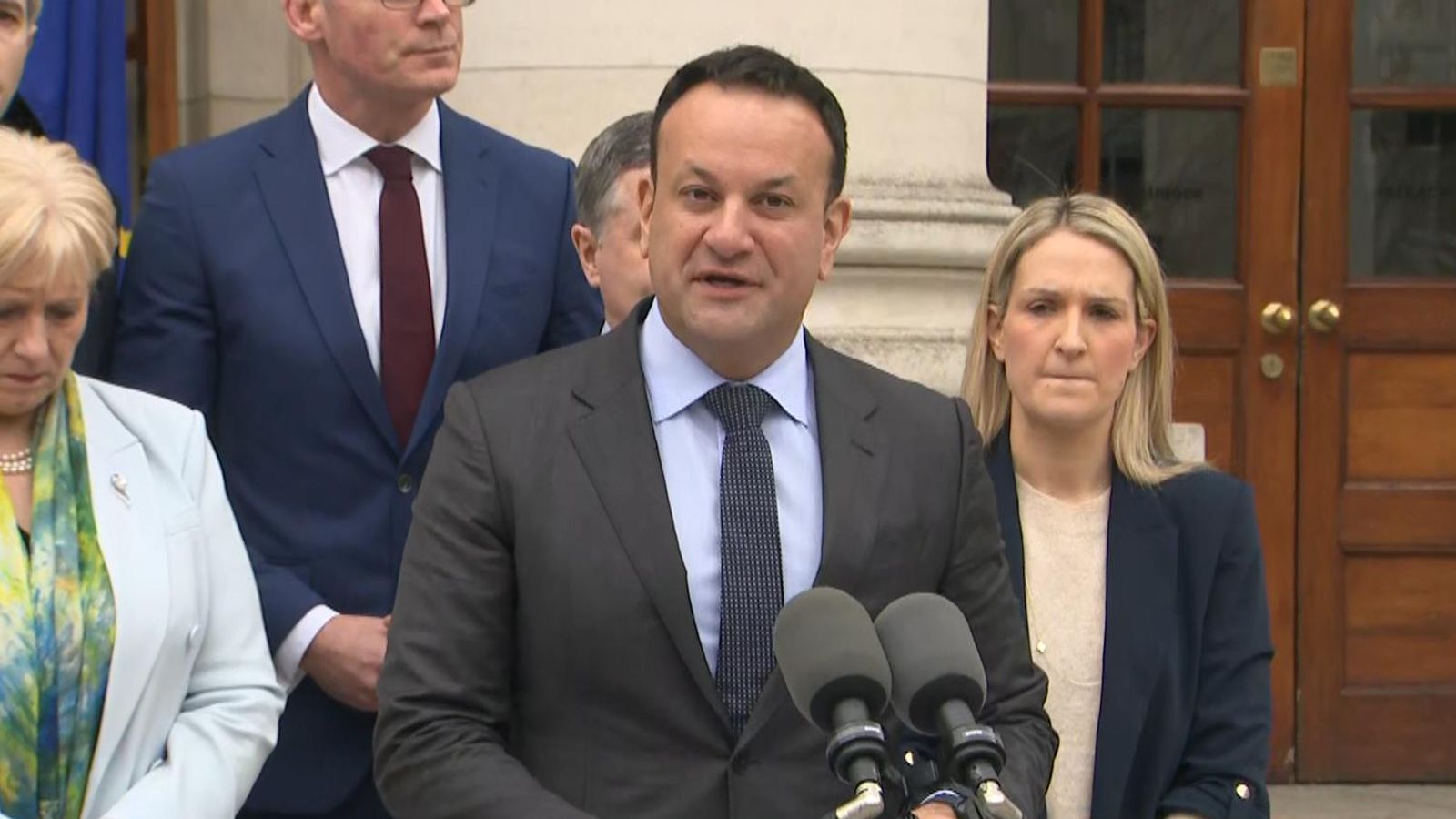Ireland’s Leo Varadkar has announced he is stepping down as prime minister.
In a statement delivered this afternoon in Dublin, Mr Varadkar said his reasons for leaving were “both personal and political”.
He said he believed a new leader “will be better placed than me” to gain seats for his party Fine Gael in the next general election.
“After seven years in office, I don’t feel I’m the best person for that job anymore,” an emotional Mr Varadkar said.
“There are loyal colleagues and good friends contesting local European elections, and I want to give them the best chance possible.”
He added: “On a personal level, I’ve enjoyed being Taoiseach… However, politicians are human beings and we have our limitations. We give it everything until we can’t anymore. And then we have to move on.”
Mr Varadkar, 45, has led the Fine Gael party since 2017 and served as Taoiseach – Ireland’s prime minister – twice.
His first stint leading the country lasted from 2017 to 2020, before he took up the role as Tanaiste – deputy prime minister – from 2020 until December 2022.
He has been the Irish premier since then in a “rotating Taoiseach” agreement that underpinned his party’s coalition with Fianna Fail and the Green Party.
After a party leadership contest, a new Taoiseach is set to be in place when the Dail – Irish parliament – returns after Easter. He will remain as a member of parliament for the Dublin West constituency.
Mr Varadkar became the first openly gay Taoiseach when he came out during the 2015 marriage equality referendum.
He was also the youngest person to hold the office when he became Taoiseach aged 38.
His departure does not automatically trigger a general election.
Mr Varadkar’s announcement comes as the Irish government was defeated in twin referendums earlier this month.
Almost 74% of voters rejected a care amendment, which proposed removing references to a woman’s “life within the home” and mothers’ “duties in the home” when providing care, replacing them with an article acknowledging the importance of family members in general, without defining them by gender.
Some 67.7% of voters rejected a second amendment, which had proposed extending the meaning of “family” beyond marriage in the constitution, instead including households based on “durable” relationships.
This breaking news story is being updated and more details will be published shortly.
Please refresh the page for the fullest version.
You can receive breaking news alerts on a smartphone or tablet via the Sky News app. You can also follow @SkyNews on X or subscribe to our YouTube channel to keep up with the latest news.
